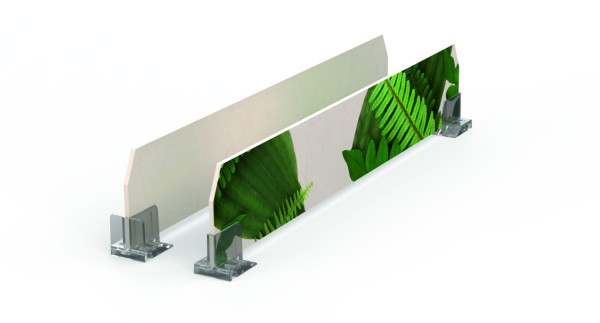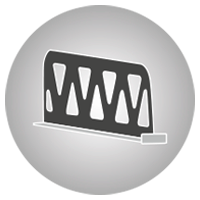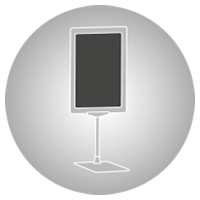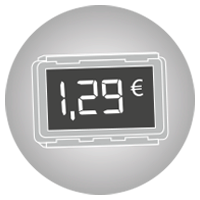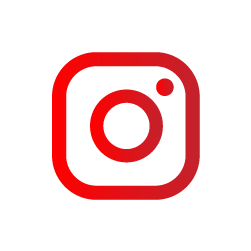The green wave is not just rolling through politics. Sustainability, environmental protection, resource conservation and CO2 footprint are keywords that have conquered business life. In the field of sustainability and "sustainable products", Oechsle will in future also focus on the responsible use of material resources and sustainable changes in the product development process. Shelf dividers are very relevant in the Oechsle product range. We mainly manufacture these from the plastics PC (polycarbonate) and SAN (styrene-acrylonitrile) in an injection molding process. Since Oechsle focuses on sustainability, our development department has dedicated itself to the topic of alternative materials for specialist dividers. In order to meet the requirements of a sustainable product concept, we can now produce our compartment dividers made of wood, WPC and PET and offer them to our customers. What is behind these materials and why are they sustainable?
Shelf dividers made of paper/cardboard
Over 90% of all paper waste can be recycled. In this way, the materials cycle can be completely closed. Companies can use their existing waste paper logistics for disposal. Cardboard dividers are contour-milled and can be individually printed and labeled. With this product we address special target groups such as natural cosmetics customers as well as natural and organic markets.
Shelf dividers made of WPC
In order to take the trend of natural materials even more into account, we have started processing WPC. Wood-plastic composites (WPC, English for wood-plastic composite materials) are thermoplastically processable composite materials that are made from different proportions of wood - typically wood flour -, plastics and additives. They are usually processed using modern plastics technology such as extrusion, injection molding or thermoforming. In terms of their look and feel, they are a perfect combination with wooden shelves. The fact that WPCs are extruded with recycled thermoplastics or bioplastics and can thus substitute for products based on plastics has proven to be advantageous. This saves the remaining oil resources. Production residues from WPC production as well as WPC after the end of the usage phase can be recycled by first grinding the products, then melting them again and finally processing them into new products. WPC is one of the most successful new biomaterials in Germany today. On the basis of renewable raw materials, we process bioplastics and biocomposites with our injection molding machines in order to produce sustainable dividers made of WPC. Promising product developments are currently underway. We promise to address many interesting customers with this sustainable product.
Shelf dividers made of PET
On the one hand, PET is perceived as a problem in society (one-way bottles, waste, marine litter), on the other hand, recycling cycles for PET already exist, at least in Europe. The R-PET (recycling PET) produced here is seen as part of the solution to the environmental problem. The relation to the topic of sustainability is obvious and with the processing of PET we can also react to the increasing demands and wishes of our customers. The material PET is therefore moving into focus for OEK as a sustainable technical plastic, as compartment dividers can be produced from PET from the established cycle of recycling PET bottles at the customer's request. These are accordingly free of bisphenol A, which means that the product does not change either visually or in terms of its technical properties.


